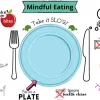What are some common obstacles to weight loss and how can they be overcome?
Losing weight can be a challenging journey, and many individuals encounter common obstacles along the way. However, with the right mindset, strategies, and support, these obstacles can be overcome, leading to successful weight loss and improved well-being. In this article, we will explore some of the common obstacles faced by individuals trying to lose weight and provide practical tips on how to overcome them.
Understanding the Obstacles
1. Lack of Motivation
- Set clear and realistic goals: Define your weight loss goals and break them down into smaller achievable milestones. This will help you stay motivated and track your progress effectively.
- Find your purpose: Identify why you want to lose weight. Whether it’s to improve your health, boost your confidence, or set a positive example for your loved ones, having a clear purpose will keep you motivated throughout your weight loss journey.
- Surround yourself with support: Seek support from family, friends, or a support group. Having people who believe in your goals and provide encouragement can make a significant difference in staying motivated.
2. Unhealthy Eating Habits
- Practice portion control: Be mindful of your portion sizes and aim to eat balanced meals that include a variety of food groups. Use smaller plates and bowls to help control portion sizes.
- Plan and prepare meals in advance: Plan your meals for the week, create a shopping list, and prepare your meals in advance. This will help you make healthier choices and avoid impulsive, unhealthy food options.
- Seek professional guidance: Consult a registered dietitian or nutritionist who can provide personalized guidance on nutrition, meal planning, and healthy eating habits.
3. Sedentary Lifestyle
- Incorporate physical activity into your routine: Find activities you enjoy and make them a regular part of your day. This could include walking, jogging, swimming, dancing, or any other form of exercise. Aim for at least 150 minutes of moderate-intensity aerobic activity per week, along with strength training exercises twice a week.
- Make it a habit: Schedule your workouts and treat them as non-negotiable appointments. Consistency is key when it comes to physical activity, so find a routine that works for you and stick to it.
- Stay active throughout the day: Look for opportunities to move more, such as taking the stairs instead of the elevator, parking farther away from your destination, or incorporating short bursts of physical activity during breaks at work.
4. Emotional Eating
- Identify triggers: Recognize the emotions or situations that commonly lead to emotional eating. It could be stress, boredom, loneliness, or even certain social settings. By understanding your triggers, you can develop strategies to cope with them effectively.
- Find alternative coping mechanisms: Instead of turning to food for comfort, explore other activities that can help you manage your emotions, such as practicing mindfulness, engaging in a hobby, or seeking support from a therapist or counselor.
- Build a positive relationship with food: Focus on nourishing your body with wholesome, nutritious foods. Avoid labeling foods as “good” or “bad,” but rather emphasize balance and moderation in your eating habits.
5. Plateaus and Slow Progress
- Track your progress: Keep a record of your food intake, exercise routines, and measurements to monitor your progress accurately. This will help you identify any areas that may need adjustment.
- Reassess your approach: If you’ve hit a plateau or are experiencing slow progress, it may be time to reassess your nutrition and exercise plan. Consult with a healthcare professional or a registered dietitian to make necessary adjustments to your routine.
- Stay patient and consistent: Remember that weight loss is not always linear, and plateaus are a normal part of the journey. Stay committed to your goals and trust the process. Focus on overall well-being and non-scale victories, such as increased energy levels or improved fitness.
Introducing Fitpaa – Your Companion for Successful Weight Loss
If you’re looking for a comprehensive and personalized approach to weight loss, the Fitpaa app is here to support you. Fitpaa uses the latest technology and expert guidance to help you achieve your health and fitness goals. With Fitpaa, you can:
- Assess your metabolism: Understand the root cause of your health condition through a metabolism assessment using Fitpaa’s advanced technology.
- Receive personalized guidance: Consult with a team of fitness coaches, nutritionists, and doctors to receive a Fitpaa Capsule tailored to your metabolism, goals, lifestyle, and eating habits.
- Follow your Fitpaa Capsule: Receive real-time guidance, habit-building strategies, and motivation through the Fitpaa app to help you stick to your fitness plan.
- Track your progress: Utilize Fitpaa’s tools such as a virtual workout trainer, diet tracker, and performance tracking to monitor your progress and make necessary adjustments.
- Access a supportive community: Connect with a community of like-minded individuals who are also on their weight loss journey, providing motivation and support.
Fitpaa is committed to helping you achieve your weight loss goals with a 100% guarantee. With a focus on lifestyle medicine and behavioral therapy, Fitpaa aims to optimize your overall health while ensuring successful weight loss.
Download the Fitpaa app today and embark on a journey towards a healthier, fitter, and more fulfilling life. Your well-being is our mission!
Note: Fitpaa is a comprehensive health and fitness app that offers personalized guidance and assistance for weight loss. While the app is mentioned here, it is important to note that the focus of this article is on addressing common obstacles to weight loss and providing practical tips for overcoming them, which are applicable to individuals regardless of whether they use Fitpaa or not.









